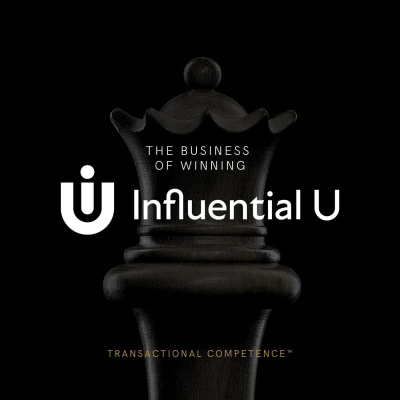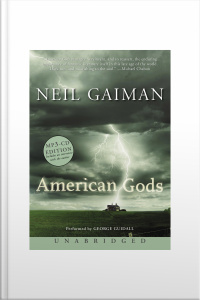Trama
The leading business education in transactional competence.
Episodi
-
When Being Likable Isn’t Enough with Janet Asher Vreeland
30/09/2019 Durata: 46minWe all assume we can play to our strong suits – but what about when those don’t work? How do I influence or gain compliance when being likable is my primary tool – and it sometimes backfires? As we teach it, all personalities experience themselves as both an asset AND a liability depending on the state of the transaction. For example, if we’re brainstorming new possibilities, it doesn’t work for skeptics to chime in with critical standards. However, skepticism is required if we’re making assessments about the value and relevance of something. In today’s’ interview, our guest, Janet Vreeland, found herself puzzled when her attempts to be likable were met with disdain. We discuss how each personality may not know that their most powerful asset – can also be their most costly mistake.
-
Decisions Based in Evidence with Neil Calvert
23/09/2019 Durata: 44minTwin Studies have been used for decades to settle the age-old Nature vs. Nurture debate about human behavior: are we hardwired to act according to our biological blueprint, or does our environment influence our behavior or gene expression? Twin Study research has helped find answers to questions on space travel, obesity, IQ, and much more. Empirical evidence has settled the debate for good. The answer? We are both Nature AND Nurture. But what about a Digital Twin…and what can it teach us? A digital twin is a real-time digital replica of a living or non-living physical entity. This replication is used to find the root cause of issues -or- experiment with changes before they are implemented in real-time. Neil Calvert and his company LINQ model your business with a digital twin – helping organizations experiment with future opportunities before investing in change and transformation. Think of it as Twin Studies for organizations – offering decisions based in evidence.
-
Ambition Is Not a Dirty Word with Darryl Anderle
10/09/2019 Durata: 53minIn a 2015 speech, American actress, producer, and entrepreneur, Reese Witherspoon launched a campaign to support women and their aspirations, with the battle-cry, “Ambition is not a dirty word.” In 2018, Oprah Winfrey interviewed Reese Witherspoon & American actress, comedian, writer, producer, and director, Mindy Kaling to talk about that moment. Growing up in lower-middle-class Texas, Influence Ecology CFO, Darryl Anderle was raised to think of Ambition as a negative word – it had selfish connotations. It seemed as if the standard for success was to get noticed for being independent, self-reliant, and hard-working; waiting for someone to consider him for advancement…which never came. In our interview today, you’ll hear how his life is now very different; how a little ambition can go along way to satisfy our aims. Here’s the interview.
-
How to Be Heard with Phyllis Tichinin
26/08/2019 Durata: 46minPhyllis Eleanor Tichinin has always struggled to have her contrary voice heard amongst the mainstream. Raised rurally in the once fruit-filled Santa Clara Valley, she earned her education as a soil scientist and environmental manager at the University of California Davis. Now in New Zealand, she raised her two children on her deceased husband’s family farm. She is currently involved in consulting and activism to remove biocides from our food supply and environment. During her studies with Influence Ecology, she discovered how to have her voice heard. As we teach it, the marketplace is indifferent to us and our aims. If we want our voice (or inviations, offers, and requests) heard, we might need to understand how to excite or agitate the indifference in others–to awaken them from their stupor. Like many who study here, there comes a time when the fact of an indifferent marketplace is accepted. We recommend that you don’t wage battle with gravity or indifference; you’ll lose. Instead, you must learn to work wi
-
An Accurate Reflection with Paul Adams
05/08/2019 Durata: 50minFrom time to time, I’ll explain Influence Ecology and our approach by telling a story about the ABC television series American Idol. The award-winning series involves discovering recording stars from unsigned singing talents. The winner receives a record deal with a major label. In one audition listed in the category of “worst of the worst” from Season 4, Mary Roach, sings “I Feel the Earth Move” by Carole King. When finished, a gobsmacked Simon Cowell asks, “what made you audition for this competition!?” Mary replies, “all my friends told me I was an awesome singer.” Simon responds, “Mary, not only can you not sing, you have one of the weirdest voices I’ve ever heard in my entire life.” Mary responds, “many people around me have told me I have an amazing voice…random people I don’t know have agreed.” With great care, Paul Abdul says, “Mary, they lied to you…” …and we all know why – we live amongst people who don’t want to kill our dreams. They want to give us hope. They want to stroke our confidence and ma
-
Save Resources, Build Surplus with Trisha Tyler
29/07/2019 Durata: 41minTrisha Tyler began studying with Influence Ecology in 2012. She was single, struggling to transform a team’s performance, and had a fair amount of consumer debt. During her early participation, Tricia became a disciple of accurate thinking as it made her a better leader and decision-maker, good mentor, and coach. As a graduate of our curriculum, she is now married, has had several promotions and raises and now lives a life of surplus - a surplus of income, freedom, and adventure. Her experience and her journey are a case study in the kind of accurate thinking and planning that allows for living an inspiring life.
-
Teach to Know with Joe and Joni Rocco
22/07/2019 Durata: 48minI’m often confounded by those who claim to know something but can’t teach it to me. The famous Nobel winning physicist Richard Feynman understood the difference between knowing something and knowing the name of something, and it’s one of the most important reasons for his success. Richard Feynman lived from 1918 to 1988. He made his mark first with his work on the Manhattan Project then won a Nobel Prize for his work in developing an understanding of quantum mechanics, and finally was a much-loved professor of undergraduate physics at Caltech University. As he explains it, there are two types of knowledge, and most of us focus on the wrong one. The first type of knowledge focuses on knowing the name of something. The second focuses on, well – knowing something. These are not the same thing. Your competence first depends on the accuracy of your understanding. He developed an intuitive way to understand called The Feynman Technique. The Feynman Technique starts with writing out something as if to teach it to
-
Being Well Known with Marcus Bell
08/07/2019 Durata: 47minMarcus “Bellringer” Bell is an American music producer, songwriter, multi-instrumentalist, singer, social media influencer, activist and entrepreneur. Having first participated with Influence Ecology in March of 2012, we interviewed him in Aug 2016 - and focused on deliberate practice - that "most people don't and won't practice". His piano practice began at age 2 with his first record company by 12 years old. In his lifetime he has marketed and promoted, produced, remixed and written for, mentored and developed some of the world’s biggest superstars and brands including Nicki Minaj, Katy Perry, Snoop Dogg, Timbaland, Sony Music, Warner Brothers, Arista Records, EMI and Universal Music. He has also created music for worldwide brands such as McDonald's, General Mills, and Peter Diamandis. Bell has also written and produced chart-topping songs for artists in Turkey, Lebanon, India, Japan, Korea, and Europe. Today, we talk about how to go from unknown to known - and what it means to be well known. After the b
-
Knowing Requires Doing and Fitness Requires Practice with Suzanne Pool
24/06/2019 Durata: 44minKnowing Requires Doing and Fitness Requires Practice with Suzanne Pool
-
Influential Environments with Christopher Mercier
17/06/2019 Durata: 42minInfluential Environments with Christopher Mercier
-
-
The Bankruptcy of Magical Thinking with Kristen Moeller
03/06/2019 Durata: 52minThe Bankruptcy of Magical Thinking with Kristen Moeller
-
Welcome to Your Brain with Cory Shepherd
18/06/2018 Durata: 37minWe all think we know more than we actually do. Do you know how paper is made? How does a toilet work? How about a pen? Our species has produced sophisticated technologies, cities, and accomplishments, but most of us don’t honestly know how these things work. How can we aspire to so much despite understanding so little? Perhaps genius is instead found in the ways we co-opt the intelligence of the social ecology: Our collaborative minds enable us to aspire to great things. In the 2017 book The Knowledge Illusion, cognitive scientists Steven Sloman and Philip Fernbach argue that we survive—and thrive—despite our mental shortcomings because we live in a vibrant community of knowledge, continually drawing on information and expertise stored in the community with which we transact. Cory Shepherd, president and financial advisor of Sound Financial Group, is a case study in our mantra: Dreams come true in groups. We can accomplish our loftiest aims when immersed amongst an ecology of resourceful, intelligent, and a
-
Some Possibilities Are Dangerous with John Severson
04/06/2018 Durata: 39minSwimming in possibilities and excitement might be more detrimental than we think. As a biological ‘exchange animal,’ our moods and transactions are inextricably linked. We read or mimic the moods of others faster than we recognize their words. We’ve all learned the hard way that a text or email can’t include the wordless cues like mood, body language, appearance, inflection, and more. Might we sometimes produce moods that are inappropriate for transacting? John Severson, of Severson Compass & Associates, a Los Angeles-based travel and venue company, offers a case study in the dangers of being oriented around too many possibilities. In today’s Guru Talk, you’ll hear Co-Founder Kirkland Tibbels discuss how appropriate moods are not always positive moods—and how a little too much excitement might be dangerous.
-
Put Your Oxygen Mask On First with Jenn Oliver
21/05/2018 Durata: 33minJenn Oliver, Senior Director of Service for the Academic Division at the University of Virginia, has learned a valuable lesson about what we refer to as "putting the mask on first." Before her study with Influence Ecology, primarily, other people's needs informed her plans. Her work was oriented only around doing for others, leaving her overwhelmed and aimless. Like many people, she was waiting for others to notice her value and reward her accordingly. She now takes care of herself and her aims first before assisting others. She's learned to decline requests, respect her own aims, and spend time on what matters to her personally and professionally. Her interview demonstrates how she has expanded her value while gaining more time, more money, and more focus. In our Guru Talk, Co-Founder Kirkland Tibbels teaches about the willingness to decline and how doing so produces more authority—and freedom.
-
From Talented Generalist to Agile Specialist with Simon Chesney
07/05/2018 Durata: 36minSimon Chesney's journey is a case study in the benefits of evolving from a talented generalist to a unique specialist. He's learned that specialization and differentiation can help him build a valued identity and that it’s possible to incorporate and combine his past experiences and expertise with his newly acquired specialized knowledge. Simon Chesney is an Enterprise Agile Coach for Western Digital, an American Fortune 200 data storage company headquartered in San Jose, California. Agile Development refers to a group of software development methodologies based on iterative development, where requirements and solutions evolve through collaboration between self-organizing cross-functional teams.
-
Slow Down to Speed Up with Matthew Jackson
23/04/2018 Durata: 35minEver found inspiration in the William H. Murray quote: "Whatever you can do, or dream you can, begin it! Boldness has genius, magic, and power in it”? How about this one by Daniel Burnham: "Make no little plans; they have no magic to stir men's blood and probably themselves will not be realized"? While these statements do seem to inspire action, perhaps boldness for its own sake is overrated . . . or a bit too, well, magical. Maybe there are other ways to stir men's blood. Perhaps there is a balance of dreaming and pragmatism that in fact speeds up results by first slowing down to think accurately about our aims, our resources, and our plans. Matthew Jackson is an Auckland entrepreneur and investor who makes no little plans. He's created a wellness solution for corporate New Zealand to increase their wellness ROI with Telehealth, making GP consultations available online through Doctor2Go as an extension of their corporate wellness strategy. Matthew is one of those innovative entrepreneurs offering unique so
-
Kirkland Tibbels – Founding Transactionalism (Ep. 50)
09/04/2018 Durata: 45minInfluence Ecology launched its first podcast episode in August of 2016 and saw our listener base grow to 70 countries and counting. This episode is our 50th, and my special guest is Influence Ecology's very own Kirkland Tibbels. You often hear him on the Guru Talk that underscores the primary point of each episode. Today, we get to learn about his own journey and why transactional competence matters—especially now. Kirkland Tibbels is co-founder and chairman of Influence Ecology—an international education company specializing in the field of transactional competence. Kirkland and his colleagues comprise an international collective of professionals who are active in the development of the philosophy of Transactionalism and the discipline of transactional competence. He is considered a leading philosopher and authority in the field, having published and contributed to the only comprehensive text on the subject, Transactionalism: An Historical and Interpretive Study by Trevor J. Phillips, and he has authored mo
-
Always an Aspect, Never an Entity with Sarah Shepherd
26/03/2018 Durata: 47minIs it better to be more selfless or more selfish? If you’re like most people, you probably treat one of these behaviors as the more preferred way to act. But have you ever considered that in either case, someone gets reciprocally dismissed? Those too selfless can leave others enabled while devaluing themselves; those too selfish can leave others neglected while isolating themselves. Is there a healthy balance . . . perhaps a middle ground? Like many people, Sarah Shepherd discovered that her desire to lead a good and virtuous life eventually proved too selfless to meet her aims for health, work, and money. And like many people, her selflessness is often contrasted against a standard that this is a better state than selfishness. However, perhaps both selflessness and selfishness carry the same ailment and cure—that you are always an aspect, never an entity. In this episode, we’ll find out more about what this means and how considering oneself ‘always an aspect, never an entity’ is a fundamental precept of t
-
Karl Strand – The Guardian of Standards (Ep. 48)
12/03/2018 Durata: 46minWho keeps us from falling off the proverbial cliff? While some are naturally inclined to dream new ideas and others can’t help but build new relationships, there is a segment of society whose entire focus and role are to protect us from our poorly constructed shortcuts. This typically skeptical personality recognizes that nothing around us is a coincidence; things are either poorly designed or built to exacting standards. Often shamed for not seeing the world as ‘glass-half-full,’ this transactional personality plays the vital role in offering the evidence required to lay claim to facts. Karl Strand founded his consultancy by making the most of his skepticism and guarding the standards for commercial architectural exteriors. Karl and his wife, Randee, live in Dallas, Texas. They have been students of Influence Ecology since June 2015. In this episode’s Guru Talk, we’ll hear Co-Founder Kirkland Tibbels talk about the asset and liability of the Judge personality and how each personality can work together.







